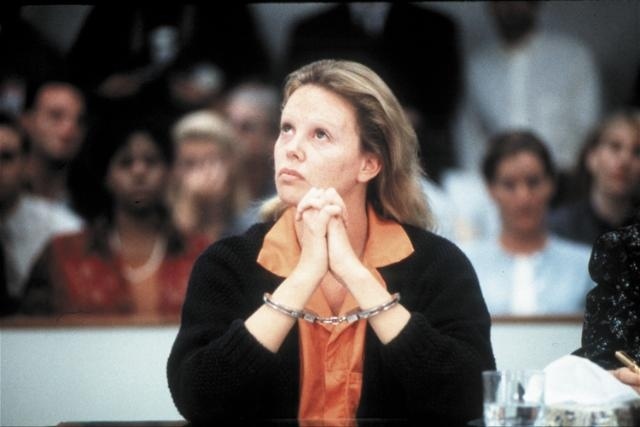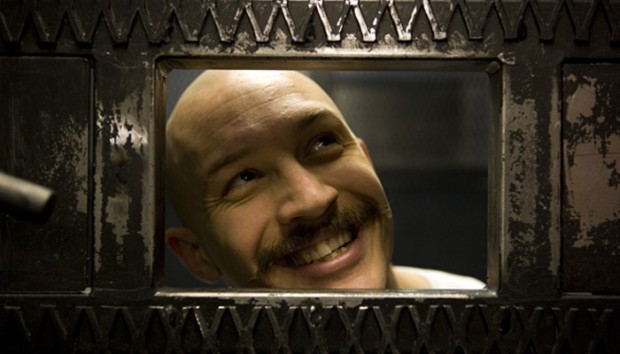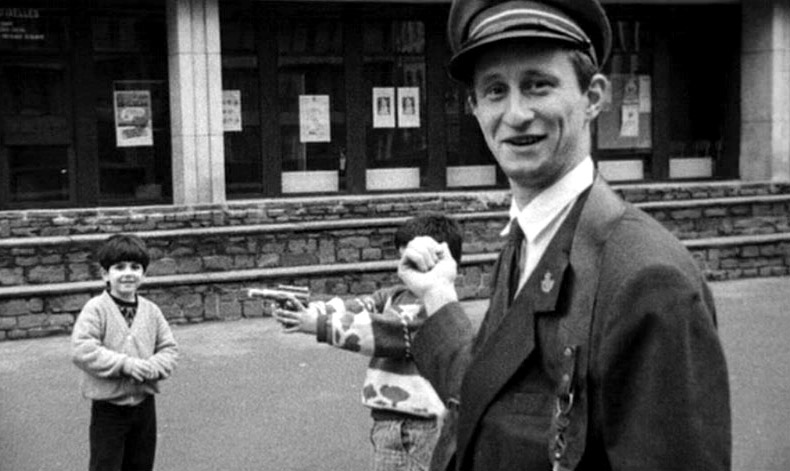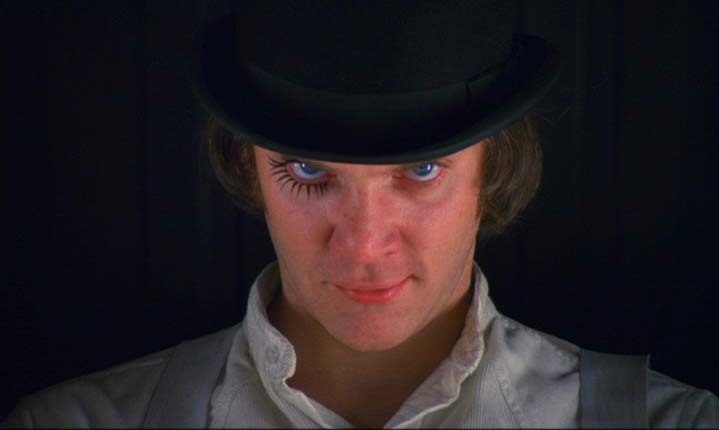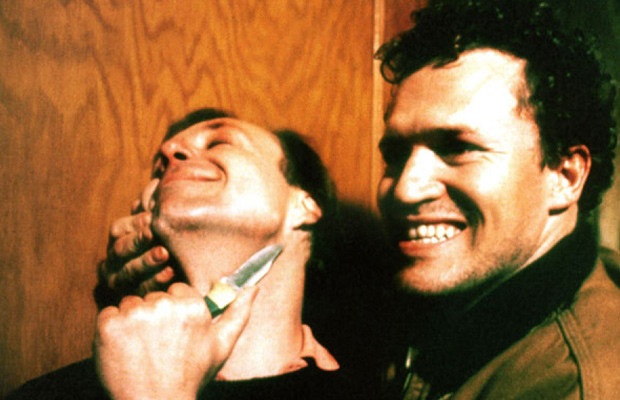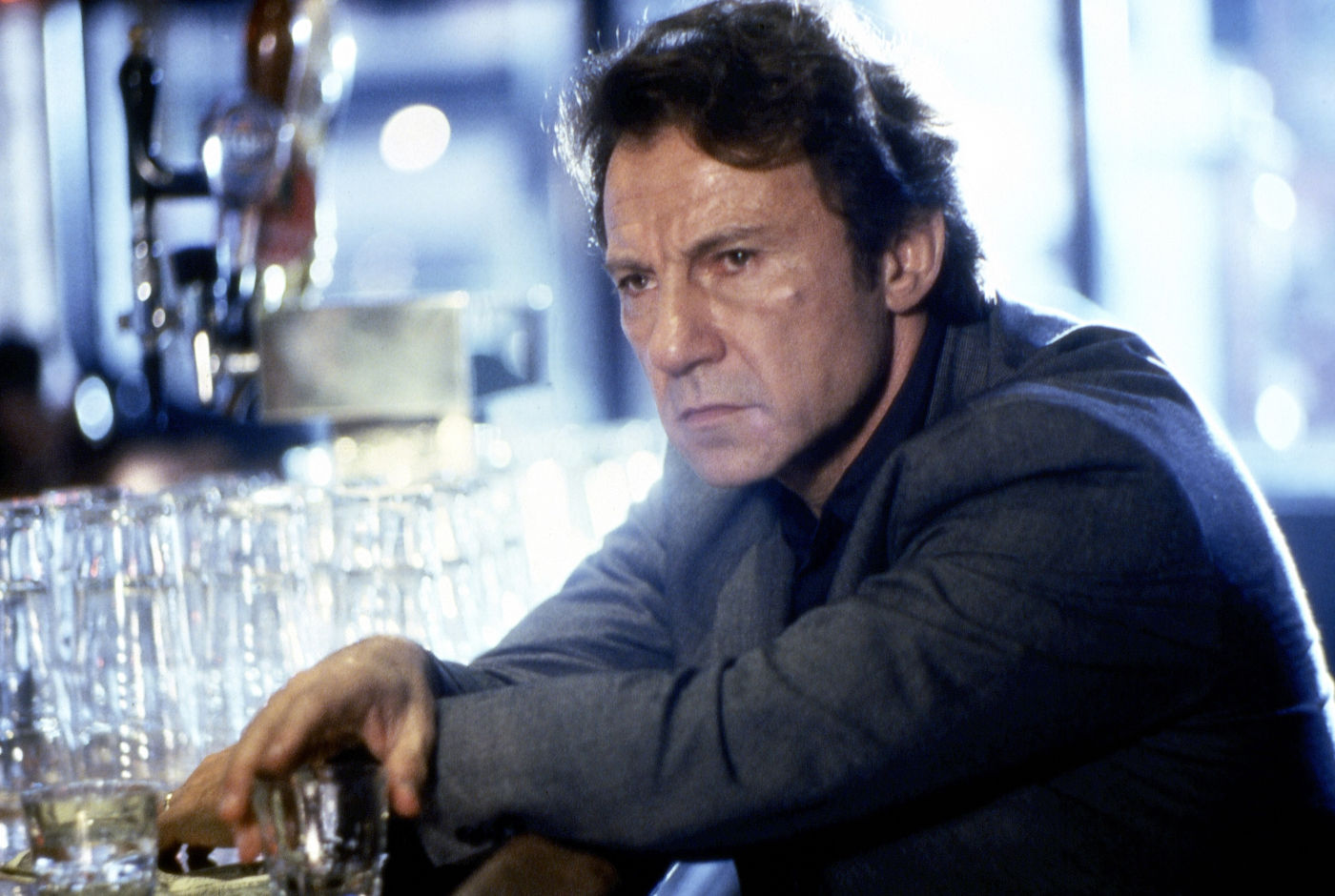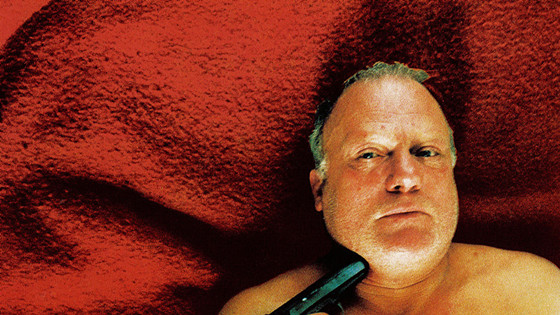8. Aileen Wuornos – Monster (2003)
Charlize Theron’s second appearance on this list is a no-brainer. “This is one of the greatest performances in the history of the cinema,” Roger Ebert effusively proclaimed in his four-star review of Patty Jenkins’s film, and it’s hard to argue with his assessment. Theron’s uncanny portrayal of convicted serial killer Aileen Wuornos – already the subject of a handful of documentaries – is astounding.
It’s not just the makeup, prosthetic teeth, and thirty pounds Theron put on that won her the Oscar, but the mannerisms, voice, body posture, and seeming discomfort in her own skin she exudes that made it less of a performance and more of an incarnation of the severely troubled woman.
Wuornos’s background is tragic, as she came from a broken home and suffered terrible abuse in childhood. And while it’s all but impossible to condemn her first kill in self-defense in the film, everything that follows makes her the monster of the title.
Wuornos was a complex, sick person who never got much of a fair shot in life, but her homicidal actions will forever seal her legacy as despicable. If that sounds overly judgmental, well, the judge and jury didn’t see it too differently, handing down not one, but several death sentences for her crimes.
7. Michael Gordon Peterson / Charles Bronson – Bronson (2008)
Called “the most violent prisoner in Britain” by the press, the man born Michael Gordon Peterson would later take the name “Charles Bronson,” after his boxing promoter suggested he adopt the Death Wish star’s moniker. This thoroughly repellant man, though never technically having killed anyone, makes for an enthralling subject of a feature film, which director Nicolas Winding Refn (Drive) delivers.
Tom Hardy packed on pounds of muscle to play Bronson, and nearly winks into the camera in uncomfortable close-ups as he cheerfully narrates his life. The film is light on elucidating his backstory, regarding its notorious central figure as simply a violent force of nature – a man for whom fighting is simply enjoyable. Bronson makes no apologies for who he is, reveling in appearing menacing as hell, even when wearing nothing at all.
Even the threat of solitary confinement, with which Bronson is intimately familiar, seems to do little to quell his vicious urges. For many, this is the film that made people take notice of Hardy, whose chillingly accurate portrayal of the infamous criminal earns him a spot on this list without question.
6. Ben – Man Bites Dog (1992)
Charismatic, witty, and also an unrepentant serial killer, the subject at the center of this mockumentary from Belgium is as deplorable as he is calculating. In this black-and-white shocker co-directed by Rémy Belvaux, André Bonzel, and Benoît Poelvoorde, Poelvoorde plays Ben, a serial murderer who explains his actions and thought processes to the filmmakers making a documentary about him.
Using razor-sharp black humor, the real-life directors have crafted a scathing indictment of society’s obsession with violence as entertainment (the English title is a sly indication of the film’s true target). They pull no punches in depicting the ghastliness of murder, as committed by the frighteningly (but likely realistically) nonchalant Ben.
Of course, this NC-17 rated film is not for everyone – any film that has the audacity to show a child being smothered to death onscreen will elicit scorn from some circles – but it’s still a smart movie that deserves to be seen.
After all, what it’s REALLY about is the relationship between the fictional filmmakers and their subject, whose crimes they become increasingly active participants in as the film goes on, as well as what the project says about us, the audience, and why such a documentary would even be appealing in the first place. All that said, the main character is certainly the worst kind of person imaginable, and warrants an appropriately just punishment.
5. Lou Ford – The Killer Inside Me (2010)
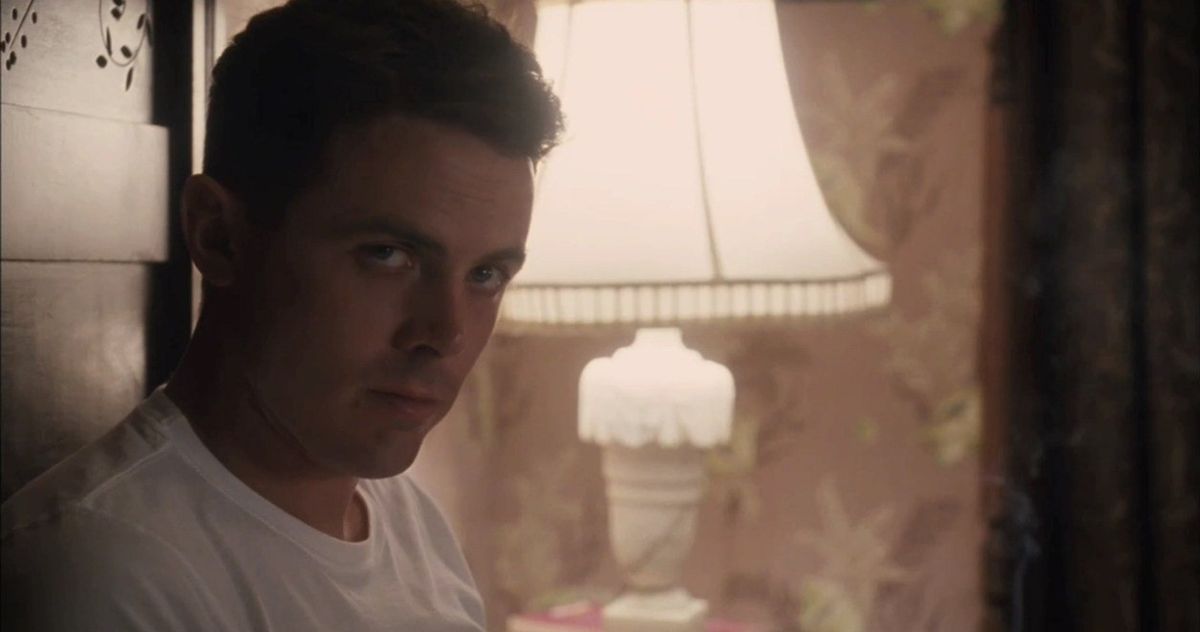
Based faithfully on the 1952 novel of the same name by Jim Thompson (which had previously been made into a movie starring Stacy Keach in 1976), this fairly straightforward crime story met with some controversy when released.
It was loudly reviled and denounced as nauseatingly violent by some when it premiered at Sundance, where it caused a minor flair-up. What critics were reacting to was the sickening treatment of two of the female characters, played by Jessica Alba and Kate Hudson, at the hands of the titular psychopathic Sheriff, Lou Ford (Casey Affleck).
Supporters of Michael Winterbottom’s film have argued that it merely had the bravery to show violence in all of its raw ugliness, and that if anything, filming the cruel beatings in unflinching, unsparing detail was just being honest with the material.
This is not a misogynistic film, though it does depict the kind of violence – disproportionately against women in the story, yes – that is rarely shown this explicitly. However, as reviewer Stephen Dalton put it, many “have made the classic mistake of confusing content for intent.”
All this should not overshadow Casey Affleck’s chilling performance as Ford, who kills inhumanely and without remorse. It’s a well-made, worthwhile film if you have the stomach for it, and Lou Ford’s nefarious behavior makes him an easy choice for a spot on this list.
4. Alex DeLarge – A Clockwork Orange (1971)
Stanley Kubrick’s landmark film about (among other things) the delicate balance between free will and the protection of society still fascinates to this day. Adapted from the 1962 novel by Anthony Burgess, the film tells the story of Alex, the leader of a gang of “droogs” in a dystopian English setting, whose favorite pastimes include, as stated in the film’s dispassionate tagline, “rape, ultra-violence, and Beethoven.”
Malcolm McDowell is riveting as the film’s antihero and “humble narrator,” committing various acts of savagery for fun and with reckless abandon. It’s only when one of his crimes directly results in a victim’s death that’s he’s betrayed by his friends and sent to prison, where he’s subjected to an experimental new form of aversion therapy that renders him not only unable to commit any acts of hostility, but completely defenseless to abuse.
The film is a remarkable achievement – its stylization and frank depictions of sex and violence causing no shortage of controversy. As the protagonist, Alex is all but impossible to relate to (after all, any film that shows a man raping a woman in front of her own husband is going to be tough to take). However, the point of the story is not to depress (it’s actually pretty funny at times), but to make us reflect on the nature of crime and evil, as Alex soon becomes victimized by the same society he once tormented.
Still, though Kubrick does try to make us sympathize with Alex to an extent as he is repeatedly punished for his past transgressions, his former victims returning to exact their vengeance, that doesn’t make him any less bad. The film’s final moments drive this point home perfectly, providing us with a disturbing and yet fitting ending.
3. Henry – Henry: Portrait of a Serial Killer (1986)
A movie so contentious that it sat on the shelf for four years before being released unrated, this is one of the best serial killer movies ever made. Like the second adaptation of The Killer Inside Me years later, this is another one of the few crime films that refuses to make violence look either cool or fun.
Cheaply made and quickly filmed, the movie is loosely inspired by the crimes of Henry Lee Lucas and Ottis Toole, and its title could not be more apt. Though its shock value may have slightly diminished over time, it still has some genuinely upsetting set pieces (the handheld home invasion scene still repulses to this day).
Michael Rooker is excellent as the title character, giving an understated performance that, while not as flamboyant as future cinematic psychos, never lets us forget how dangerous Henry is. He casually explains his killing philosophy to Otis (Tom Towles) in one scene, and in another, narrates the alarming story of his childhood abuse and killing of his mother to Otis’s sister, Becky (Tracy Arnold), though his conflicting accounts of the event make us doubt his sanity to a degree (something The Dark Knight would channel with the Joker’s origin story years later).
Director John McNaughton keeps the film grounded in reality and doesn’t sugarcoat the material, the dark and ultra-realistic tone being one of the MPAA’s main sticking points. There is no attempt made to romanticize Henry in any way, and the woefully bleak finale, while super unsettling, is nonetheless honest and right for this kind of story.
2. The Lieutenant – Bad Lieutenant (1992)
Not to be confused with the similarly titled film starring Nicolas Cage unleashed upon the world by Werner Herzog in 2009, this grim character study from Abel Ferrara is the very definition of dark. Harvey Keitel gives a fearless, vulnerable, and naked (both literally and figuratively) performance as the nameless lieutenant – a corrupt cop struggling with gambling debts, alcoholism, and addiction to hard drugs.
There’s not much plot, other than the lieutenant’s connection to the case of a nun who’s been raped but refuses to identify her attackers. Instead, we bear witness to a painful downward spiral, though between his self-destructive behavior and scenes like the one in which he verbally rapes a teenage girl (you don’t want to know), the lieutenant’s plight elicits almost no sympathy from the viewer.
This is not an enjoyable film by any measure, and few may see the point in its relentless dive into depravity, but you can’t argue that it’s not well constructed. Among its admirers is none other than Martin Scorsese, who named it the fifth best film of the decade. That’s definitely got to count for something…
1. The Butcher – I Stand Alone (1998)
Called by some a more honest, French version of Taxi Driver, this film is like a cinematic punch to the gut. The unnamed protagonist played by Philippe Nahon is an out-of-work butcher who goes on a journey “in the bowels of France” (as the tagline puts it) to find his mentally handicapped daughter.
Along the way, his constant stream-of-consciousness voice-over enlightens us as to his less than favorable views towards women, gays, and basically every kind of minority. Asked if he saw the film as racist, Argentinian-born French director Gaspar Noé replied, “Yes, it’s an anti-French movie.”
Featuring a “Warning” title card that appears before the climax (which is more of a gimmick, given that the butcher’s most jaw-dropping misdeed occurs early in the film), the abrupt sound of a gunshot used throughout the film to accompany scene transitions, and a scene where the butcher watches hardcore pornography (which is shown un-obscured onscreen), this is decidedly NOT mainstream viewing. That said, it’s also a thrilling work of art, arguably even more affecting than Noé’s next film, the notoriously brutal Irréversible.
Noé is a force to be reckoned with, and it’s obvious from his few films that he cares little about the traditional idea of movies as “entertainment.” But he is definitely no nihilist, preferring instead to explore nihilism as directly as possible. The hateful butcher who is the focus of the film is impossible to like, but we’re never meant to approve of him.
Rather, the film’s total commitment to transmitting the disturbed character’s mindset to the audience in a visceral manner is bold and supremely effective. For better or for worse, it really is an unforgettable experience.
(Dis)honorable Mentions:
Melvin Udall – As Good As It Gets (1997)
Benny – Benny’s Video (1992)
Ruth Stoops – Citizen Ruth (1996)
Jeffrey Dahmer – Dahmer (2002)
Bobby Dupea – Five Easy Pieces (1970)
Whip Whitaker – Flight (2012)
Roger Greenberg – Greenberg (2010)
J. M. W. Turner – Mr. Turner (2014)
Kimberly Joyce – Pretty Persuasion (2005)
Peter Loew – Vampire’s Kiss (1989)
Author Bio: Jason Turer received his B.A. from Cornell University with a double major in Film and English, and currently works in TV and film production in New York City. He has too many favorite films to list here, but some of his favorite directors include Kubrick, Cronenberg, Hitchcock, and Lynch.
